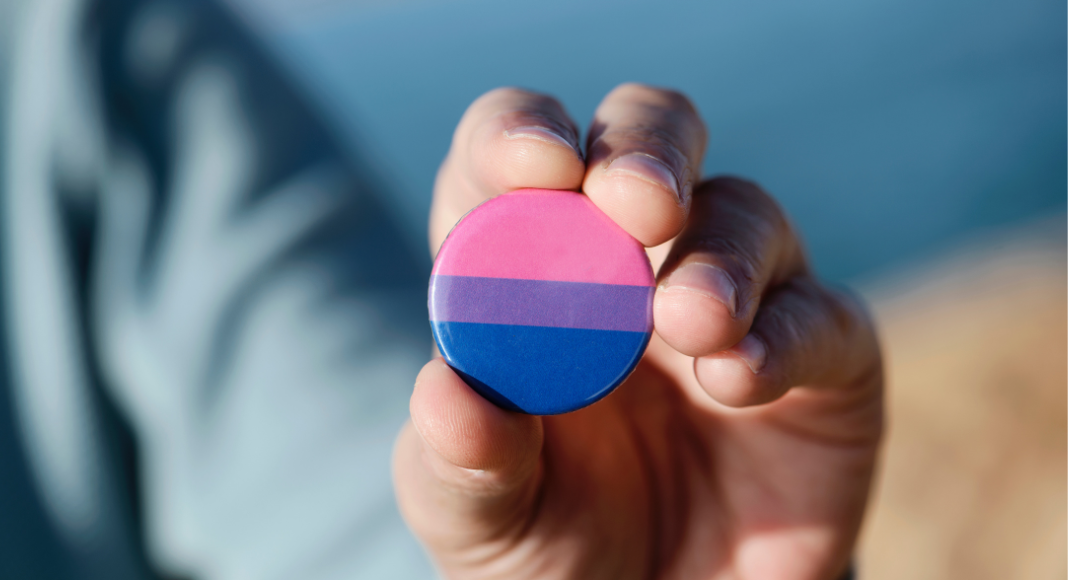 Members of the LGBTQIA+ community are celebrated during Pride Month, which has recently passed. However, there is one group that is often dismissed by the LGBT community and heterosexuals together: those who identify as bisexual. September 23rd is Bisexuality Day or Bi Visibility Day. A day to celebrate and acknowledge those in the bi community and bring awareness to the challenges they face on a day-to-day basis. So, what are some of the unique trials, misconceptions, and biases bi people face? How can you aid in raising the voices of bi people on this significant day? Read along to find out.
Members of the LGBTQIA+ community are celebrated during Pride Month, which has recently passed. However, there is one group that is often dismissed by the LGBT community and heterosexuals together: those who identify as bisexual. September 23rd is Bisexuality Day or Bi Visibility Day. A day to celebrate and acknowledge those in the bi community and bring awareness to the challenges they face on a day-to-day basis. So, what are some of the unique trials, misconceptions, and biases bi people face? How can you aid in raising the voices of bi people on this significant day? Read along to find out.
Coming out is a monumental deal, whether you identify as bi, lesbian, pansexual, queer, etc. You risk losing relationships, not being accepted, harassment, and intense emotions. Did you know that according to a study conducted by Pew Research, bisexuals are less likely to come out to their loved ones compared to their lesbian and gay counterparts? The study showed that when asked “if the most important people in their lives were aware of their sexual orientation,” those that identified as bisexual answered 26% for “none” and only 19% for “all or most.” At the same time, those who identified as gay or lesbian answered 4% and a whopping 75% when compared. The difference is substantial. Are bisexuals not coming out due to the general stress that comes with “coming out,” or is it something deeper?
Growing up, I remember frequently hearing that people who are bisexual are just going through a “phase.” That they’re really either straight or gay/lesbian and just not ready to “come out.” And people I knew who were bisexual were constantly labeled as gay or lesbian, despite already stating their sexual orientation as bi. Those are some of the most common misconceptions and stereotypes that bi people encounter from people in the LGBT and non-LGBT communities. I sat and watched as biphobia and homophobia consumed people, something I still witness today.
I remember when I was around twelve or thirteen, my mom thought my younger sister was lesbian, locked her in her room for about two days, and refused to feed her. My sister was/is not lesbian, while I, on the other hand, had started questioning my sexual orientation regularly. I remember sneaking food to my sister so she could eat and developing an immense sense of dread of ever expressing concerns over my sexuality to those close to me. I told myself that it was just a “phase,” and I liked guys too, so it will go away. It was a sin and I’d burn in hell, so I need to pray and pray and invest myself completely into God. That there was something wrong with me, and maybe if I hate that part and ignore it enough, it will go away. But it never did. I think it festered like an untreated wound.
I decided to come out to my husband two, almost three years ago. By that point, I had already realized that I was indeed bisexual and couldn’t deal with the unbearable pain and anxiety that came with trying to shame and ignore a part of me for so long. I sobbed, expressed how I felt like something was wrong with me, apologized, and told him I understood if he didn’t want to be with me anymore. I was terrified he wouldn’t accept me or that he would leave and I’d be alone with my “shameful” bisexual self. But he stayed. He validated me and my feelings and didn’t view me any differently. I remember the relief that flooded over me as if a literal weight had been lifted off my shoulders as I cried and hugged him. Two years later, I came out to my best friend. Eight months later, I came out to my aunt, who was/has been a great support, and asked her for some guidance on the subject. A week or so later, I came out to my dad and two sisters, who were the only people I felt should know at the time. And now I have come out to anyone who reads this article.
I have experienced some negative/biased commentary coming out to certain people. When I came out to my dad, he was accepting, but his immediate fear was that I was going to leave my partner to enter a polygamous relationship or start cheating on him. I was slightly taken aback because I couldn’t comprehend how my being sexually attracted to females and males automatically meant that I would be a cheater or want to be with someone else. I laughed it off and assured him that I was still in a committed, monogamous relationship. But I soon realized that this is a regular occurrence for people in the bi community. Those biases and misconceptions seem to be ingrained into the minds of others, whether they identify as LGBT+ or not; whether those stereotypes are coming from a place of negativity and intolerance or from simply being uneducated about the subject. It’s intimidating, the fear of judgment and scrutiny. But coming out can also empower you and allow you to be your genuine self, to live your life more freely and wholly. It allows you to celebrate and honor you.
Nobody should have to live life the way I, and others, have lived for so long. Nobody should have to live in fear or shame just for being themselves or because they live differently from you. I genuinely hope that this article has brought some enlightenment to you and to others. I hope you feel encouraged to bring awareness to biphobia and call it out in situations where you may be able to. I hope you feel encouraged not to assume others’ sexual orientations and ask questions instead of making generalizations. This is my first-time celebrating Bisexual/Bi Visibility Day. Whether it is your first time as well, or you’re already a proud ally, I hope that you will join me in validating and celebrating bi experiences, raising the voices of bi people, and raising awareness of the unique challenges that bi people face regularly. Sending out much love and positive vibes on this special day.








